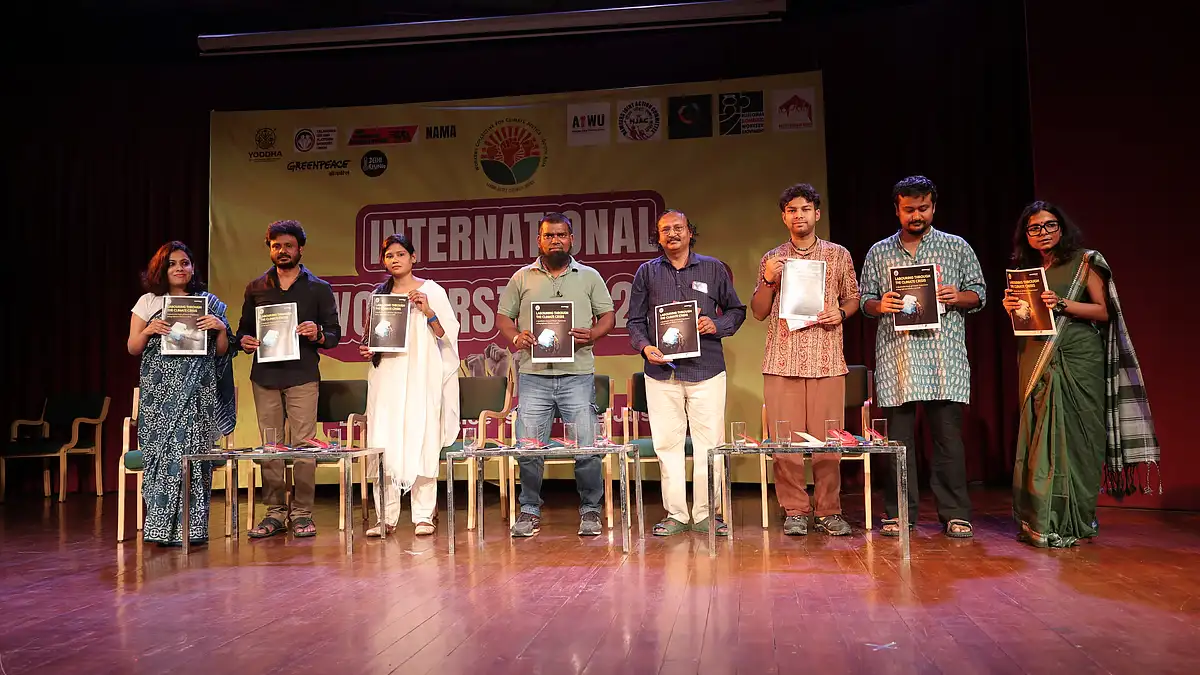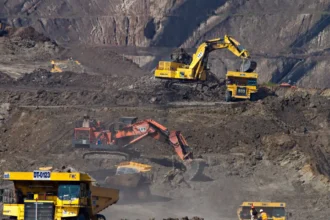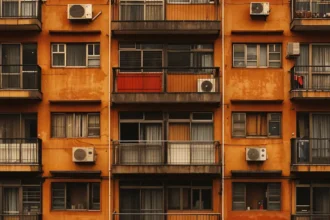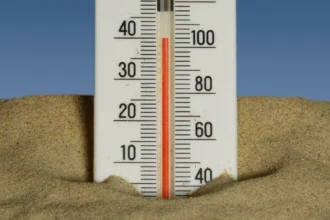Ten worker groups across South Asia have signed a major agreement on Labour Day (May 1st), asking governments to make fossil fuel companies pay for climate damage. According to DownToEarth, these workers from India, Sri Lanka, Bangladesh, and Nepal joined forces during a severe heatwave to demand climate justice and support for vulnerable communities.
Who Joined the Climate Movement?
- Workers’ Collective for Climate Justice — South Asia (representatives from all four countries)
- Sandeep Verma from YODDHA
- Akash Bhattacharya from All India Central Council of Trade Unions
- Anita Kapoor from Shehri Mahila Kamgar Union
- Amruta S Nair from Greenpeace India
These groups chose Labour Day for their announcement because it symbolizes worker rights worldwide and helps highlight the connection between climate change and worker suffering. The timing matches the World Meteorological Organization’s recent declaration that 2024 is the warmest year on record, making the issue even more urgent.
What is the Polluters’ Pay Pact?
The Polluters’ Pay Pact is an agreement demanding that big oil and coal companies pay taxes based on how much they pollute. Think of it like making someone pay money to clean up a mess they created in your neighborhood.
According to Greenpeace, this plan could raise up to $900 billion by 2030 to help communities recover from climate disasters. The money would support people who suffer from floods, heatwaves, and other extreme weather that is becoming more common.
How Heat Hurts Workers’ Livelihoods
The groups also launched a detailed report showing how extreme weather affects informal workers in Delhi. These are people who work without fixed jobs or regular pay, like street vendors, construction workers, and waste pickers.
| Temperature Increase | Impact on Workers |
|---|---|
| 1.6°C rise | 14-19% drop in daily earnings |
| 1.6°C rise | 14% increase in medical expenses |
| 1.6°C rise | 6% higher chance of getting sick |
| Heat exposure | 16-22% loss of sleep |
According to Mongabay, when the temperature goes up by just 1.6°C, workers earn 14% less money each day. When you consider both heat and humidity together (called “wet bulb temperature”), earnings drop by even more.
The research studied 400 informal workers in Delhi, using daily surveys and special measurements to track how heat affects their lives. According to EFDInitiative, the findings show a clear connection between rising temperatures and falling incomes.
Extra Challenges for Women Workers
Women who work in informal jobs face additional hardships during hot weather. Many women must:
- Continue household duties even after working in extreme heat
- Find safe places to rest during the hottest parts of the day
- Manage family health when children or elderly relatives get heat-related illnesses
- Deal with water shortages that make cleaning and cooking more difficult
Anita Kapoor from Shehri Mahila Kamgar Union pointed out that women often have to work longer hours to make up for lost income during extreme heat, creating a dangerous cycle.
What These Workers Are Demanding
The Polluters’ Pay Pact includes several specific demands to help workers survive climate change:
- Climate tax on fossil fuel companies based on their emissions
- Cooling centers in worker neighborhoods
- Better access to clean water during hot months
- Financial support systems during extreme weather events
- Healthcare support for heat-related illnesses
- Weather warnings in local languages
According to the Guardian, these workers point out that people in the Global South (countries near the equator that are often less wealthy) suffer the most from climate change, even though they contributed the least to causing it.
The Growing Movement
This worker-led movement shows how climate change is becoming a labor issue across South Asia. As temperatures continue to rise, more worker groups are joining the call for climate justice and fair treatment from the companies responsible for pollution.
The timing of this pact – during both a record-breaking heatwave and on International Labour Day – sends a powerful message about the urgent connection between worker rights and climate action. As you read about these changing weather patterns, remember they affect real people’s ability to earn a living every day.











